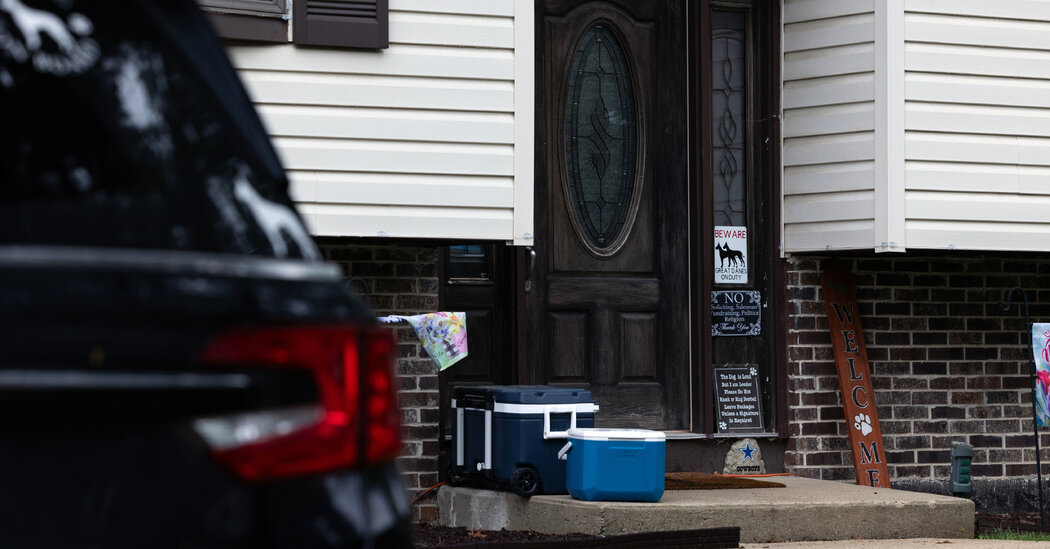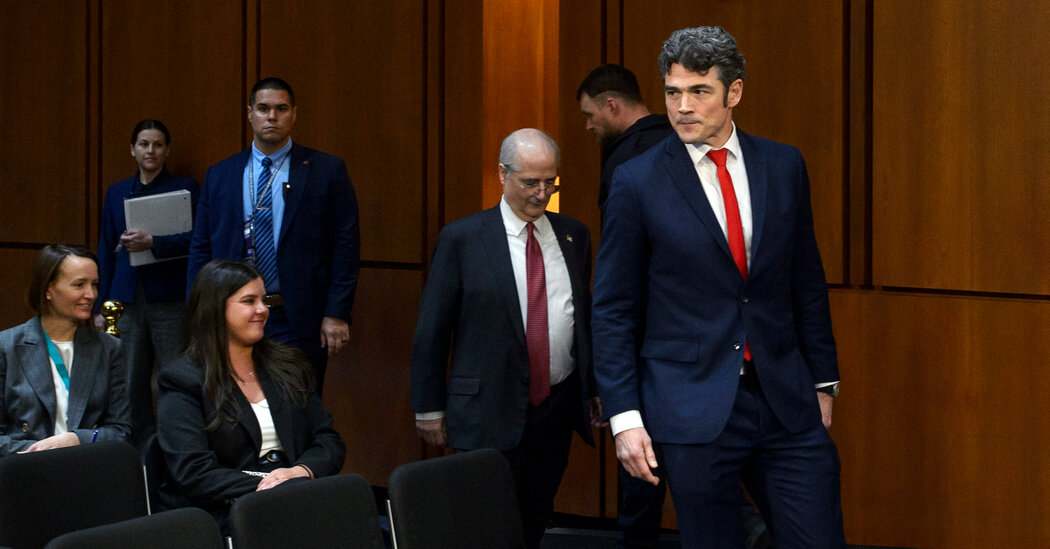Why is it so hard to capture a flattering picture of one’s breasts? Here are a few reasons posited by Tabitha Lasley, the author of “Sea State,” as she attempts a topless selfie: If one tilts the camera upward in hopes of producing a firm and youthful impression, one’s lower face may barge into the frame, accompanied by a more-than-desirable number of chins. If breasts are presented in profile, stomach proportions have to be considered. Taken from the front, with elbows pressed inward to slim the waist, breasts may acquire “the pendulous aspect of a nursing ape’s.” Lasley taps her phone’s camera button relentlessly, documenting each shift in pose, until, on her 94th try, she strikes the nude-selfie jackpot: an image that improves upon reality without veering into implausibility.
She is taking the photo for her boyfriend, Caden, an offshore oil worker whom she has met in the coastal Scottish city of Aberdeen. Lasley, a journalist, is in town to write a book about oil rigs — or, actually, to rewrite one.
Her original book on the subject, which she spent four years drafting, was stolen from her London apartment in the form of two laptops: one containing the manuscript and the other containing its backup file. (Every writer’s nightmare.) “I kept hoping a memory stick might be slipped through the door, but that’s what ethical thieves did, in places like Sweden,” she writes of the purloined book. No such stick appears. She promises her editor that she’ll start from scratch, packs her bags and flies north to Britain’s oil capital, intending to spend six months interviewing workers about life at sea.
Oil fascinates Lasley because it offers a cheat code for the game of economic ascent, being one of the few avenues for handsomely paid (and legal) blue-collar opportunity in her country. She’s met a few oil workers before: They drive flashy cars, wear expensive clothes, cover themselves in tattoos and snort the finest cocaine in all of the land. “The sort of people you’d want at a house party, provided the house wasn’t yours,” she writes.
Trouble starts approximately one instant after Lasley steps off the plane in Scotland. She notices a man at the airport, pale and compact with freckles across the bridge of his nose. He lugs the telltale kit bag of the oil worker. “I’m looking for men like you,” Lasley says, sizing him up as a prime interview subject. The man, who turns out to be the lucky future recipient of her selfies, refuses to give her his phone number, citing the fact that he is married. But he finds a way to meet up with her anyway, and they’re soon drinking, and chemical signals are exchanged. The chapter ends with a hotel room scene that would be rated TV-MA for “strong sexual content” if it appeared on Netflix.
What was meant to be one sort of book — a systematic inquiry into the extraction of oil — zags for a time into a predictably doomed romance. Caden, at 30, is four years younger than the author, but he is also more fully equipped with the accessories of adulthood: wife, children, steady job and, inexplicably, eight televisions. The two fall in love and, to Lasley’s surprise, Caden offers to leave his wife, in a suggestion that arrives via text message:
“What do u think about us being properly together???”
To which Lasley writes back: “Ok.”
I dare you to conceive of a scenario less romantic. (Food poisoning? Cleaning the litter box?) Almost as quickly as the affair begins, it crumples under the weight of divorce logistics. What appeared to be a simple math equation (man plus woman minus inconvenient wife equals happiness) becomes one of those fiendish LSAT logic questions. Rather than pick up his solving pen, Caden dumps the author and returns to his wife. Which is when the book finally gets good.
Whatever alleged charms Caden might have had in real life, he comes across on the page as a preening dummy — a leaver of slurred voice mail messages, a teller of obvious fibs and a person whose hobbies are limited to shopping and complaining. With him out of the way, Lasley returns to her initial obsession: grilling plumbers, scaffolders and platers about their jobs. Some work on drill rigs — the mobile units designed to actually drill wells — and others work on platforms, which are set over the wells to extract and process oil.
They tell her about occupational hazards large and small. The small hazards pertain to the realities of squeezing dozens of men into remote enclosed spaces. To prevent feuds and bickering, each man must observe a hundred microscopic courtesies over the course of his day: leaving the toilet seat unmarked, wiping the grime of his stubble from a sink basin after shaving, tactfully scheduling moments of privacy in shared cabins.
The major hazards stem from the tension between production and compliance. Companies are expected to deliver specific amounts of oil and gas to the grid, and failure to do so incurs penalties. Since maintenance slows production, safety hazards tend to be opportunistically overlooked. There are countless ways to die on duty. A person could be asphyxiated by odorless liquid hydrocarbon, or he could plummet seaward in a chopper crash, or he could grow despondent from the job’s rigors, fill his pockets with wrenches and take a leap off the side of a vessel.
Lasley is a gifted interlocutor, teasing out startling confessions (one of her 103 interviewees confesses to a murder) and insights about the cliques, fights and hierarchies of a dangerous vocation. The book’s hybrid of ethnography, journalism and disclosure might have been disastrous in the hands of someone without Lasley’s candor and style. Instead, “Sea State” accomplishes what many memoirs do not: It organizes a messy life with a clear vision.


